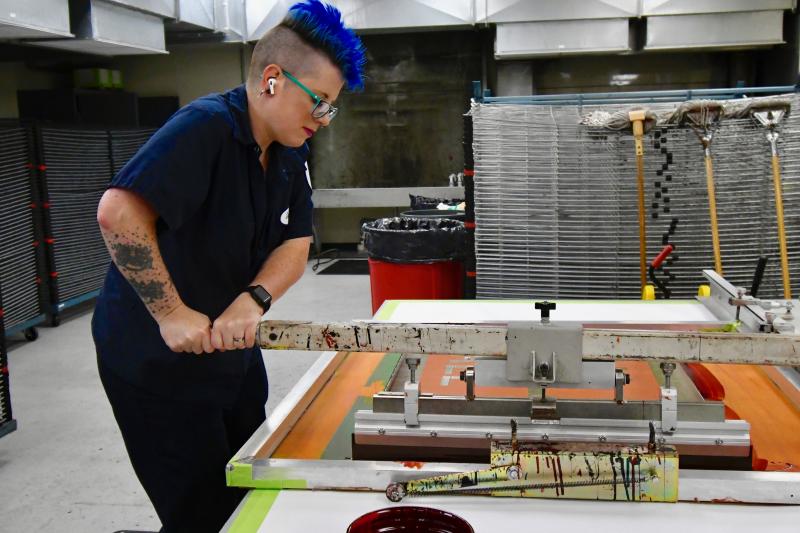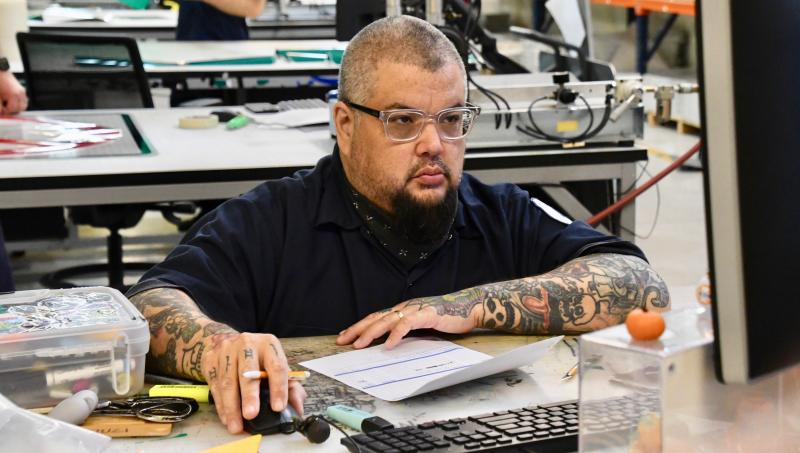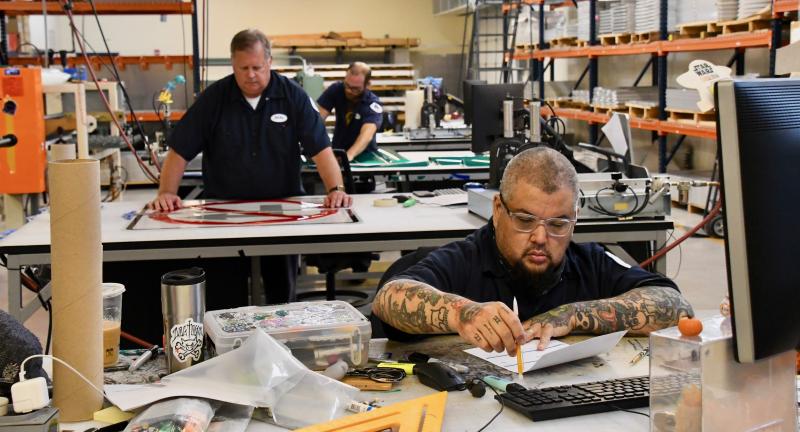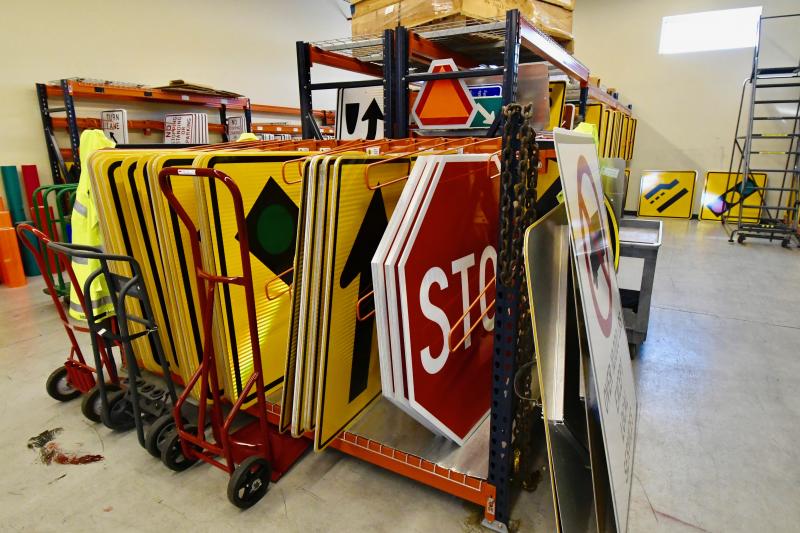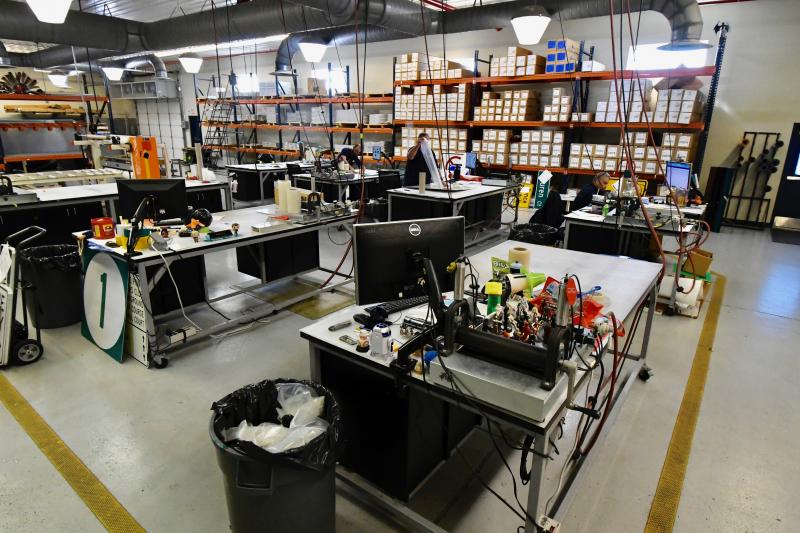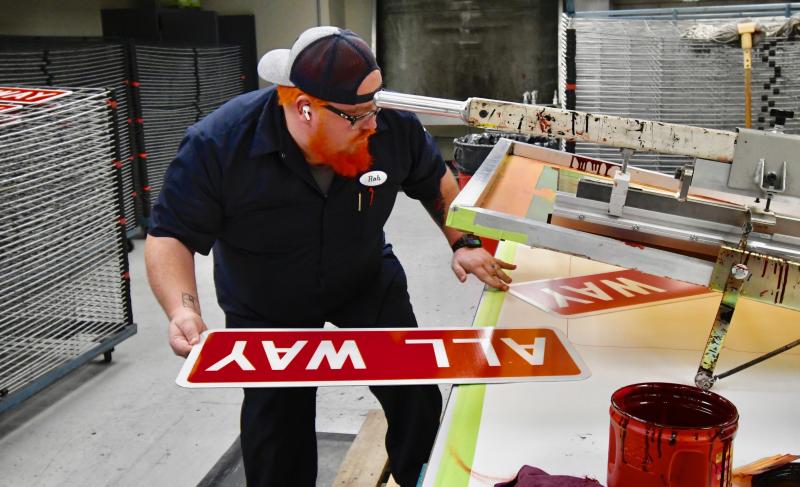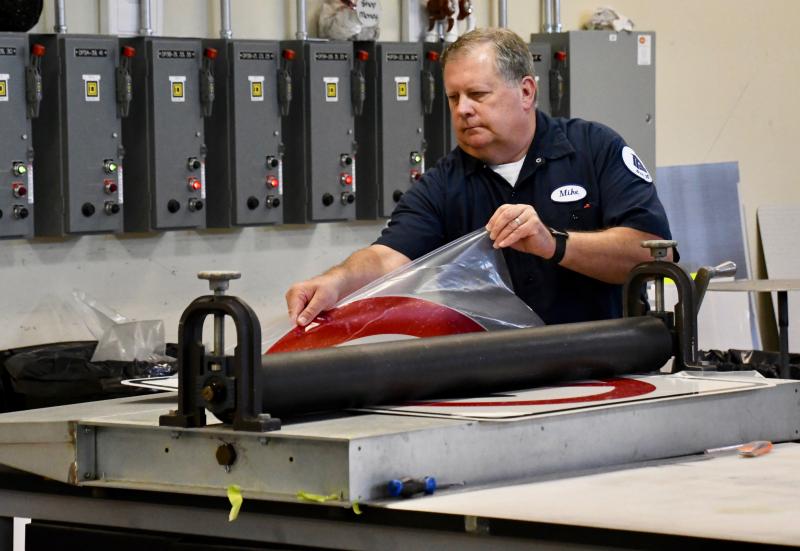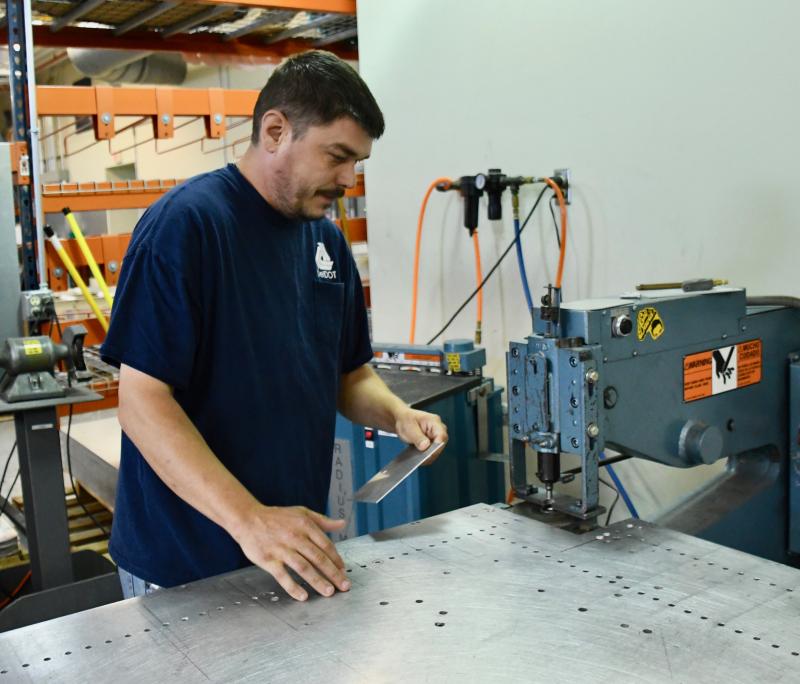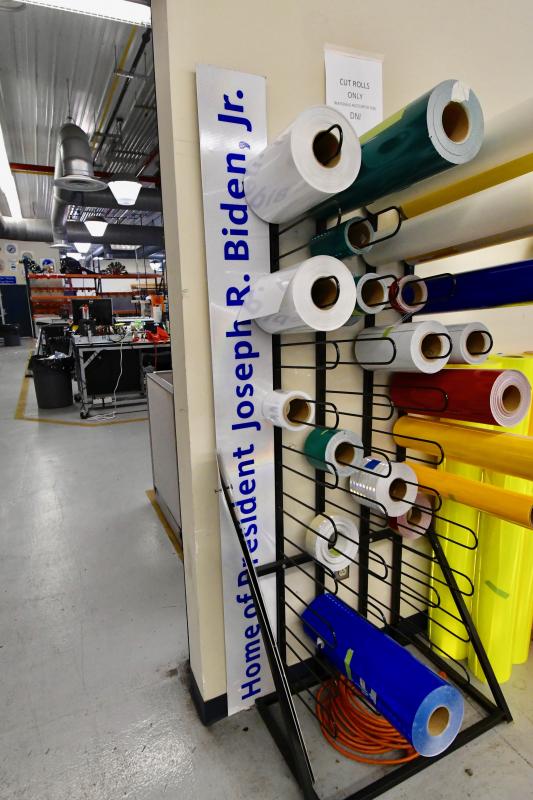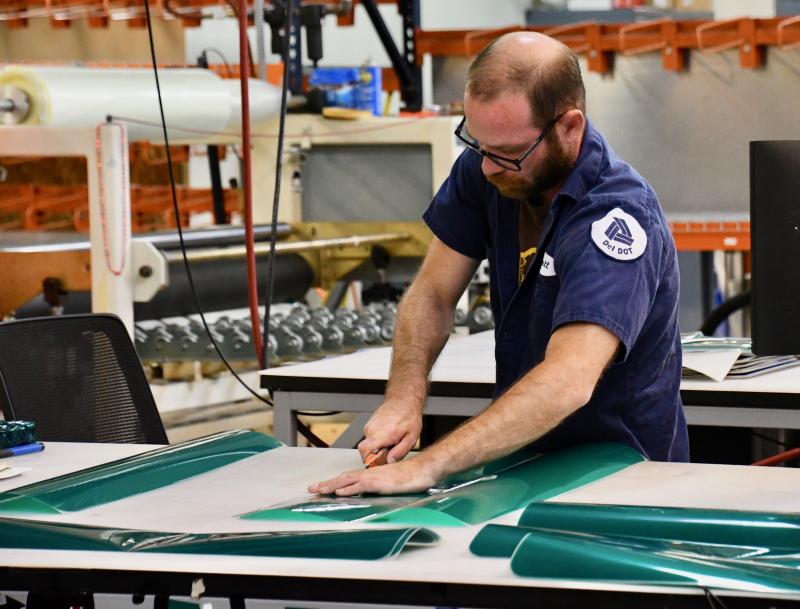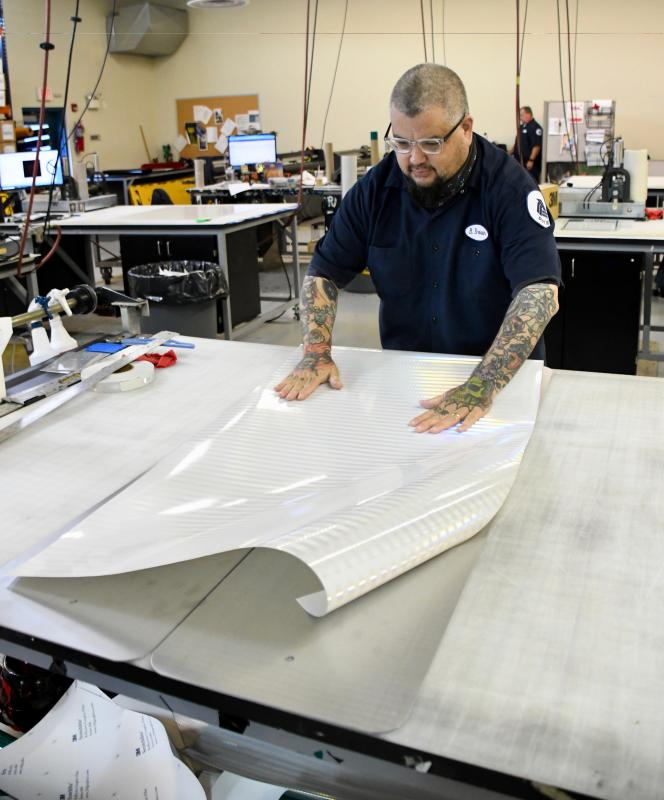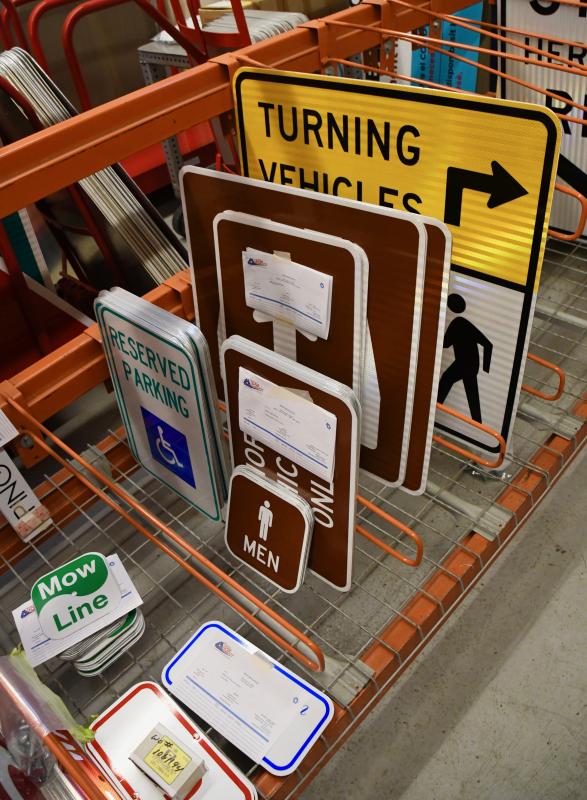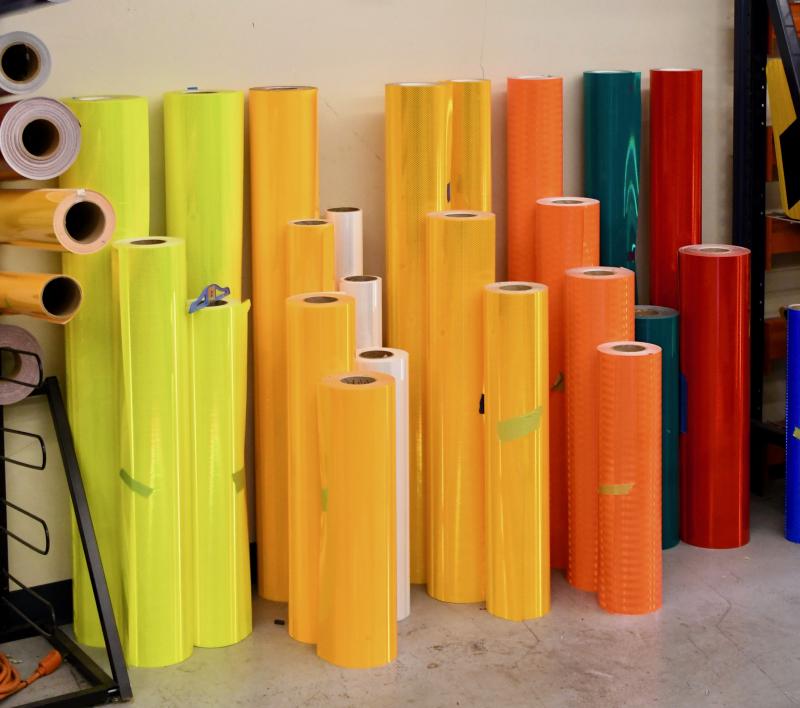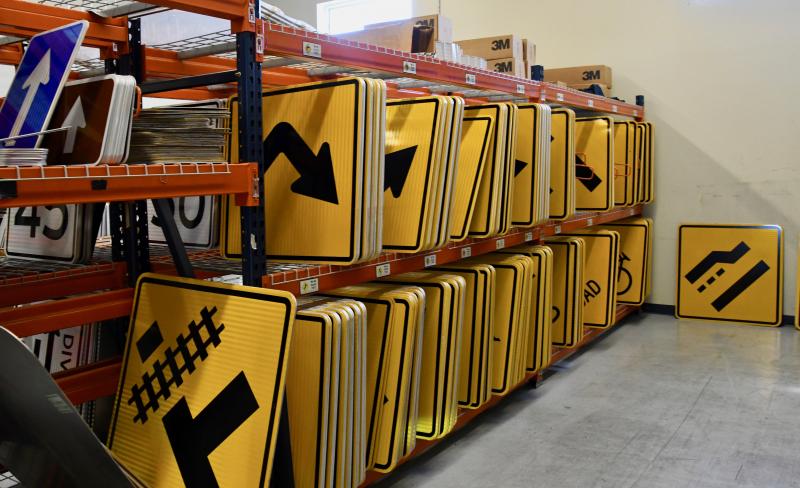We all drive by dozens, if not hundreds of them, every day. Roadway signs not only direct us, they also play a critical role in driving safety. Imagine a world without stop signs.
Motorists don't give the story behind Delaware's roadway signs any thought, but the Delaware Department of Transportation sign shop in Dover runs like a well-oiled machine, cranking out 40,000 to 50,000 signs a year.
Consider all of those signs are made by six DelDOT employees under the direction of two supervisors.
And they just don't make roadway signs, but also make signs for all state agencies and buildings and some towns and cities, as well as signs at state parks and trails.
Erik Ball, DelDOT's signing operations manager, said about 99% of all roadway signs are made in the Sign Shop Road shop on DelDOT's Dover campus off Route 13. Most of the large overhead signs like those on I-95 and other major roadways are made by contractors because, Ball said, the DelDOT shop doesn't have large enough equipment to tackle huge signs.
Sign shop employees also make road project signs paid for and installed by contractors.
Right now, there are more than 300,000 signs on Delaware's roadways.
It's really a multi-step process with finished signs installed by another small team of workers.
DelDOT staff used to make signs in a State Street shop in downtown Dover, then in an old aircraft hanger at Dover Air Force Base. The hanger was moved to the main DelDOT complex, and eventually a facility was built to house the sign shop.
Sign shop employees are on call 24 hours a day just in case they need to replace missing emergency signs such as stop and yield signs. They must be replaced within two hours of getting a call.
Since many road signs are a standard size, Ball said, they have pre-cut metal sign plates in stock.
Signs are made three ways: applied vinyl, a screened ink process similar to how T-shirts are imprinted, and digital printed signs.
Applied vinyl signs are more labor intensive, so larger sign orders are completed using the two other processes.
Because of the wide array of colors and design options, digital signs are the wave of the future, Ball said.
Many of the most-used signs – such as stop, yield, road closed and detour – are kept in stock in a large warehouse.
Ball said the sign shop is feeling the effects of inflation and supply chain issues. “Metal is harder to get and most costly,” he said. “The price has tripled for steel sign posts.”
Those posts are so valuable they are kept in a fenced area surrounded by barbed wire.
